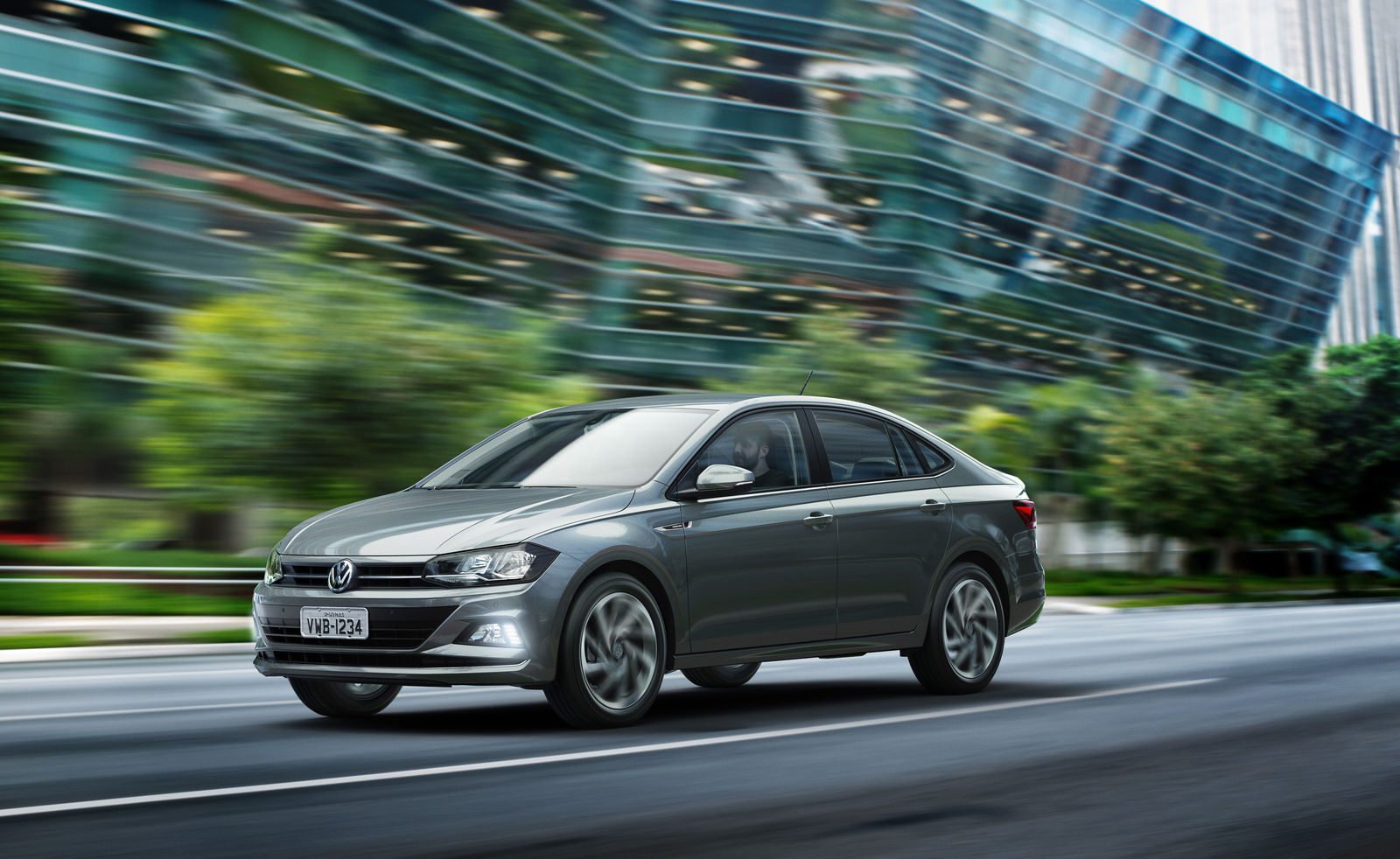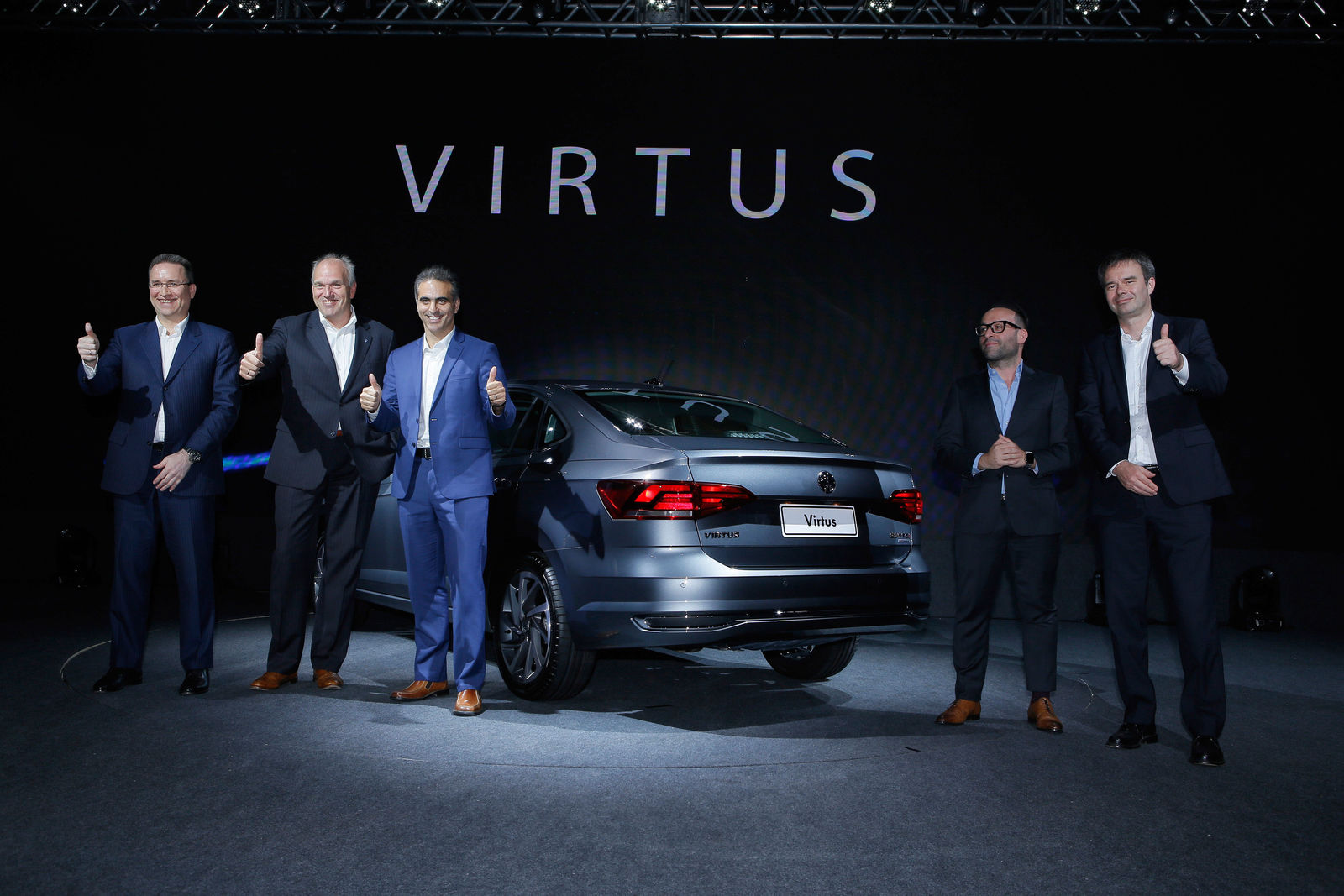- World premiere in Sao Paulo: Virtus to regain market shares with innovative MQB technology
- Superior package with generous space crossing segment boundaries, emotional design and the latest connectivity features
- Largest Volkswagen model offensive in Brazil launched: 20 new models by 2020, investments of €1.8 billion
- Board Member for Sales Stackmann: "The Virtus sets standards in innovation and technology."
The Volkswagen brand is setting a further milestone in its South America strategy. With the world premiere of the entirely newly developed compact sedan Virtus in Sao Paulo, Brazil, Volkswagen is forging ahead with the realignment of the brand in South America. The new model, developed especially for the South American market, offers the latest features based on innovative MQB technology and is among the most spacious cars in its segment.
The Virtus is part of the brand's largest model offensive in Brazil. By 2020, 20 new models are to be launched, of which 13 will be produced at Volkswagen's Brazilian plants. Volkswagen is extending its range in Brazil in key segments. For this purpose, the Group will be investing a total of about €1.8 billion in Brazil. Last week, the company already announced investments of about €560 million for a new SUV model in Argentina, which is to roll off the production lines from 2020.
"With our Transform 2025+ strategy, we have set ourselves a clear target: in all the key regions, Volkswagen intends to become the most attractive volume brand. The Virtus shows how we are reinforcing the positioning of the brand in the regions. The new Volkswagen models, which will be precisely tailored to customers' wishes, will be quality and technology leaders in the volume segment," said Jürgen Stackmann, Member of the Board of Management of the Volkswagen brand responsible for Sales. "Over the next few years, we will be doing everything in our power to take Volkswagen back to the lead in the largest South American automobile market" added the Board Member for Sales.
With its Virtus compact sedan, Volkswagen is stepping up its product offensive on the growing Brazilian market. The fastback, with a length of 4.48 m, sets standards in its class in terms of technology, conductivity, comfort, spaciousness and performance. The Virtus is the first Volkswagen model and the first car in South America to feature assistance systems using artificial intelligence to support the driver. This web-based function is the first result of cooperation between Volkswagen and the IBM IT group.
The Modular Transverse Toolkit (MQB) also brings benefits in terms of interior design. With its wheelbase of 2.65 m, the Virtus offers space for five adults as well as one of the largest cargo spaces in its class, with a capacity of 521 liters.
"We are advancing in South America – and are renewing our model range in Brazil step-by-step. Following the presentation of the new Volkswagen Polo a few weeks ago, the Virtus is a further key element in our drive to take Volkswagen back to the lead in the region," said Pablo Di Si, President and CEO Volkswagen South America Region and Brazil, at the world premiere of the new model.
Following the Golf and the new Polo, the new Virtus is the third model in Volkswagen's Brazilian model offensive based on MQB technology. By 2020, they are to be followed by an entirely renewed pick-up model range and further locally produced SUV's. Volkswagen has invested about €660 million in the modernization of the Anchieta plant, about 20 km to the south of Sao Paulo, for the production of the Virtus and the Polo.
Within the framework of its Transform 2025+ strategy for the future, Volkswagen is taking action to successfully reposition its business on world markets. Increasingly, the brand is transferring to the regions responsibilities which have previously been exercised centrally from Wolfsburg. The regions hold comprehensive responsibility for the entire spectrum of business – up to and including decisions on the model range. In addition to South America, responsibilities are being transferred to North America, China and the sub-Saharan region in Africa.


Media contacts


